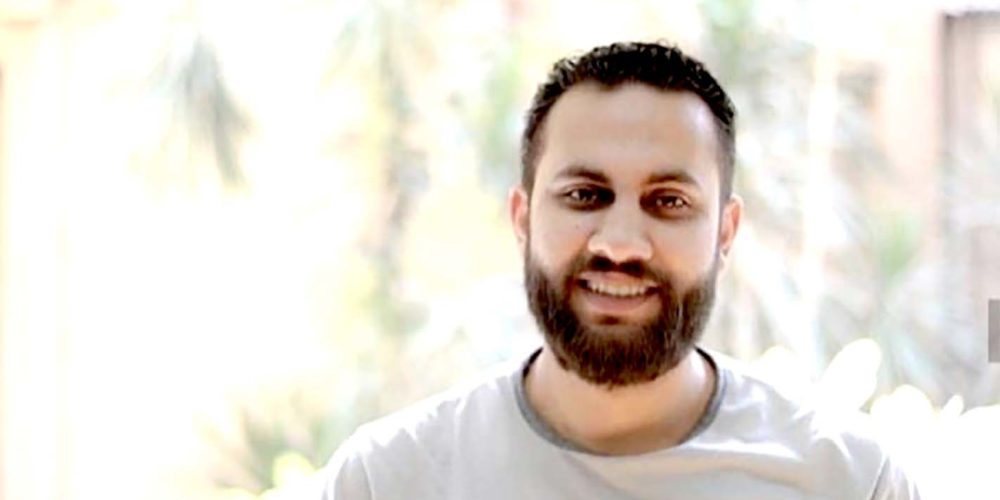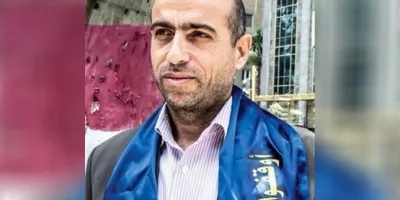Rather than denial to the international community
Days before his detention renewal session scheduled for Sunday, December 22, the undersigned Egyptian rights organizations renew their demand for the immediate release of Ibrahim Ezz El-Din, Urban Researcher at the Egyptian Commission for Rights and Freedoms. We condemn his continued detention in connection with Case no. 488 of 2019, and call for a credible investigation to be opened into his 167-day disappearance, with security apparatus knowledge and complicity, during which he suffered torture and other abuse and maltreatment. The prosecution has turned a blind eye to the obvious marks of torture on Ezz El-Din’s body, which were also cited in his personal statements, and is instead investigating him for fabricated crimes.
The crime of enforced disappearance
In the November 2019 government’s report to the United Nations, the Egyptian government claimed full adherence to the standards of law in all arrest, detention, and trial processes, denouncing what it considered “misinformation” about reprisals against human rights defenders and its political opposition. Amr Marwan, Minister of Parliamentary Affairs, declared during an interview[1] that Egypt applies the International Convention for the Protection of All Persons from Enforced Disappearance. However, the disappearance of Ibrahim Ezz El-Din by Egyptian state security is the crime of enforced disappearance, according to the definition adopted by the convention.
Abuses against Ibrahim
Ibrahim Ezz El-Din’s location had remained unknown since the time of his arrest on the morning of June 12th 2019, when security forces stormed his house and took him blindfolded to an undisclosed location. He did not appear until 167 days later, on the morning of November 26, before the State Security Prosecution, where he was subjected to physical and psychological abuse. Ezz El-Din was then detained blindfolded in solitary confinement for several days, where he was unlawfully interrogated -without his lawyer present – about his work in the right to housing. He faced starvation, threats, intimidation, and sleep deprivation, and was subjected to death threats to coerce confessions out of him.
Abuses against activists
The case of Ibrahim Ezz El-Din is representative of a widening pattern of violations and abuse, which refutes the Egyptian government’s claim that it does not engage in the crime of enforced disappearance. Enforced disappearance, with the knowledge of Egypt’s state security agencies, is not negated by the re-appearance of persons pending investigation in cases, as the Egyptian government misleadingly claims. Included within the scope of enforced disappearance are the time periods that detainees spend at clandestine state security headquarters, during which they are tortured, threatened and pressured until they give confessions and statements. 336 cases of enforced disappearance were documented over varying periods; most of the disappeared persons later appeared before the State Security Prosecution pending several cases. Some of the investigations were carried out during the period of enforced disappearance, and in the majority of the cases, confessions were extracted under torture, according to Stop Enforced Disappearance Campaign.
In Ibrahim Ezz El-Din’s case, like many others, the State Security Prosecution claimed that his arrest happened one day prior to his appearance before the Prosecution, despite the fact that he was arrested six months earlier, since when his family and lawyer had taken all legal means to uncover his fate. His family and lawyer filed a complaint to the General Attorney no. 8077 of 2019, and filed a lawsuit to the Administrative Court no. 56026/73, against the Minister of the Interior, and demanded the disclosure of Ibrahim Ezz El-Din’s detention location. They had also sent telegraphs to the General Attorney and letters to the National Council for Human Rights, to no avail.
Signatory Organizations
- Cairo Institute for Human Rights Studies
- Belady Center for Rights and Freedoms
- Egyptian Commission for Rights and Freedoms
- Egyptian Front for Human Rights
- Freedom Initiative
- Nadeem Center
- Committee of Justice






